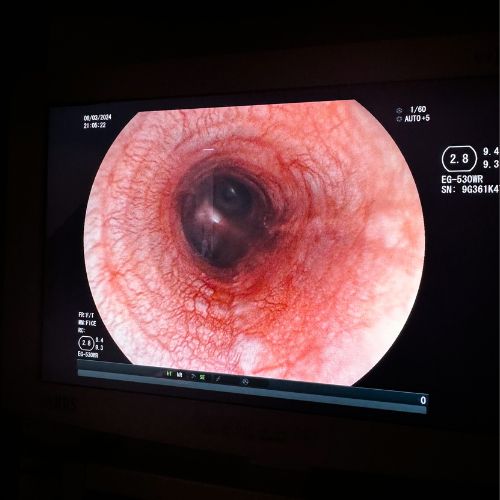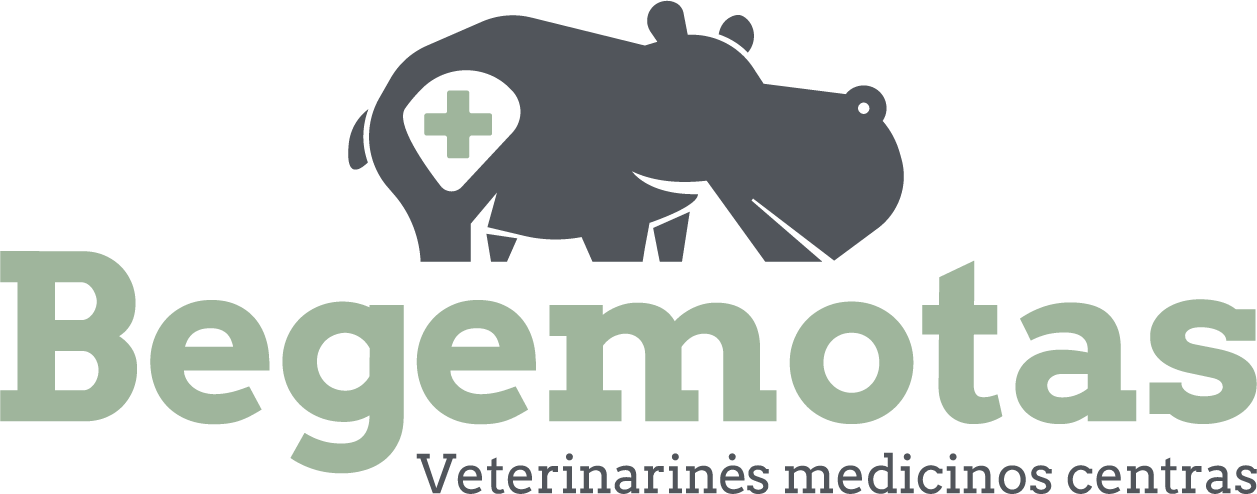Why us?

Competent staff
Experienced veterinarians and caring assistants.

Modern equipment
Accurate and rapid diagnosis.

Happy pet
Healthy because happy.
Vaccinations for dogs and cats at the Begemotas veterinary clinic
Vaccinations for dogs and cats prevent diseases that could cause serious health problems or even death in animals if left unvaccinated. At the Begemotas Veterinary Clinic, veterinarians recommend vaccinating cats, dogs, ferrets, and rabbits against infectious diseases as recommended by vaccine manufacturers.
Puppies and kittens are vaccinated according to different schedules based on the manufacturer’s recommendations. Annual rabies vaccinations are mandatory under Lithuanian law.
- Rabies is a deadly disease caused by the rabies virus. The rabies virus is transmitted through bites or other forms of contact with an infected animal. Since rabies is dangerous to humans, vaccination against this disease is essential for both cats and public health. Specialists at the Begemotas Veterinary Clinic remind that, according to Lithuanian law, rabies vaccination is mandatory for cats.
- Feline panleukopenia (feline distemper) is a highly contagious viral disease caused by parvovirus. The disease has a high mortality rate, especially among kittens. Symptoms include fever, vomiting, diarrhea, loss of appetite, and dehydration. The feline distemper vaccine is one of the most important and necessary vaccines for every cat.
- Feline viral rhinotracheitis and calicivirus infection (upper respiratory tract diseases). These two diseases are most commonly found as causes of respiratory tract infections in cats. Rhinotracheitis is caused by feline herpesvirus, while calicivirus infection is caused by calicivirus. Both diseases cause a runny nose, coughing, sneezing, eye discharge, and other respiratory symptoms. Although these diseases are not usually fatal in adult cats, they can be very dangerous for young kittens and older cats. Vaccination helps protect cats from these infections.
- Feline leukemia virus (FeLV) is a dangerous disease that can cause a weakened immune system, anemia, and even cancer. The virus is transmitted through infected saliva, urine, feces, or blood, and can also be passed from mother to offspring. Although not all cats infected with FeLV will develop the disease, the presence of the virus in the body significantly increases the risk of serious health problems. Vaccination against FeLV is recommended for cats that may come into contact with other cats, especially outdoor cats.
-
Rabies is a deadly viral disease caused by the rabies virus and can be transmitted to humans. The disease spreads through animal bites, and the infection affects the brain, causing neurological symptoms and ultimately death. Due to its dangerous and zoonotic nature, rabies is one of the mandatory vaccinations in many countries. Specialists at the Begemotas veterinary clinic remind that, according to Lithuanian law, rabies vaccinations are mandatory for dogs.
-
Canine distemper is a highly contagious viral disease that affects the respiratory, digestive, and nervous systems of dogs. Symptoms can vary, ranging from fever and coughing to serious neurological problems. Canine distemper is often fatal, especially in young and unvaccinated dogs.
-
Parvovirus is a highly contagious disease that mainly affects the dog’s intestines, causing severe diarrhea, vomiting, and dehydration. The disease is particularly dangerous for young puppies and can be fatal if not treated in time.
-
Canine hepatitis – the disease affects the liver, kidneys, eyes, and blood vessels. It is caused by canine adenovirus. The symptoms of hepatitis can vary greatly, from mild fever to severe liver disease, which can be fatal.
-
Leptospirosis is a bacterial infection caused by Leptospira bacteria. The disease can affect a dog’s kidneys, liver, and other organs. It is a zoonosis, which means it can be transmitted to humans, so vaccinating dogs against this disease is also important for public health.
-
Parainfluenza is a viral disease that causes viral tracheobronchitis, also known as respiratory viral infection, which is highly contagious among unvaccinated dogs. Although this disease is not usually fatal, it can cause serious health problems, especially in puppies and older dogs.
Vaccinations at Begemoto Veterinary Clinic are provided by:

Vet. Doctor DMITRIJ

Vet. Doctor EDMUNDAS

Vet. Doctor ELENA

Vet. Doctor MILDA

Vet. Doctor ROBERT
Sign up now!

Vet. Doctor EGLĖ

Vet. Doctor GABRIELĖ
Cost of vaccination
The cost of vaccination at the vet may depend on several factors:
The price varies depending on the type of vaccine. Some vaccines are combination vaccines, i.e., they protect against several diseases at once, and their price may be higher.
Vaccine prices may also vary depending on the manufacturer and the quality of the ingredients used. High-quality or newer-generation vaccines may be more expensive.
During vaccination, the veterinarian may examine the animal or provide advice on its health, nutrition, or care, which may be subject to additional fees. Fees may also apply for administrative costs, such as vaccination certificates or entries in the pet's EU passport for travel.
Reviews
 Nerky2025-02-17Jauki aplinka ir malonus personalas
Nerky2025-02-17Jauki aplinka ir malonus personalas Kristina Masoit2025-02-08Šioje klinikoje gydomės jau daugiau nei metus, o mūsų draugai, kurie turi gyvūnų, lankosi šioje klinikoje su savo augintiniais, visada lieka patenkinti savo augintiniais ir jų šeimininkais. Visiems klinikos "Begemotas" darbuotojams labai ačiū už sunkų darbą ir profesionalumą.
Kristina Masoit2025-02-08Šioje klinikoje gydomės jau daugiau nei metus, o mūsų draugai, kurie turi gyvūnų, lankosi šioje klinikoje su savo augintiniais, visada lieka patenkinti savo augintiniais ir jų šeimininkais. Visiems klinikos "Begemotas" darbuotojams labai ačiū už sunkų darbą ir profesionalumą. teja2025-01-27amazing place , such great and caring doctors , always very caring understanding and helpful. You can tell they love and care for each and every animal❤️
teja2025-01-27amazing place , such great and caring doctors , always very caring understanding and helpful. You can tell they love and care for each and every animal❤️ Vaida Matijošaitė2025-01-25Ačiū gydytojai Eglei už pirmąsias, labai profesionalias apžiūras ir patarimus. Labai didelis ačiū Gabrielei už suteiktą skubią pagalbą ir priežiūrą gydymo metu. Čija siunčia linkėjimus! 🤍
Vaida Matijošaitė2025-01-25Ačiū gydytojai Eglei už pirmąsias, labai profesionalias apžiūras ir patarimus. Labai didelis ačiū Gabrielei už suteiktą skubią pagalbą ir priežiūrą gydymo metu. Čija siunčia linkėjimus! 🤍 Giedrius Znutas2025-01-15Kaip aplankęs daugybę klinikų Lietuvoje esu patenkintas paslaugų kokybe. Pirmą kartą man buvo taip detaliai paaiškinti augintinio kraujo tyrimai.
Giedrius Znutas2025-01-15Kaip aplankęs daugybę klinikų Lietuvoje esu patenkintas paslaugų kokybe. Pirmą kartą man buvo taip detaliai paaiškinti augintinio kraujo tyrimai. The Nomad (One man and his dogs.)2025-01-14Taking dogs their tonight for treatment prior to return to UK
The Nomad (One man and his dogs.)2025-01-14Taking dogs their tonight for treatment prior to return to UK
Registration
Don’t delay – register for vaccination at the Begemotas clinic today and give your pet the best chance to stay healthy. Let’s take care of your pet’s health together!
or online:


